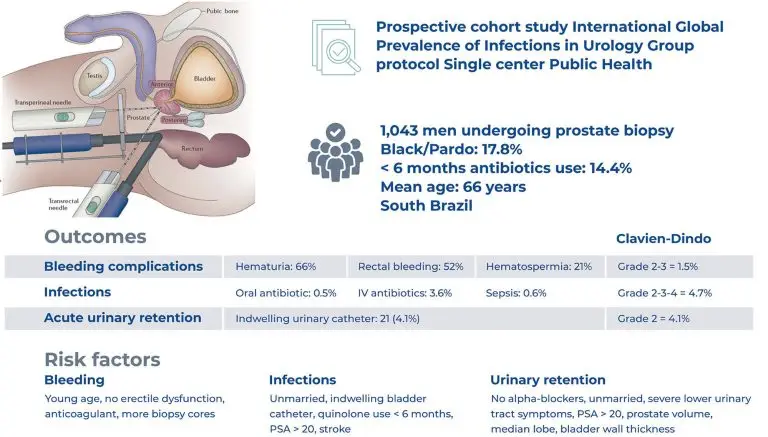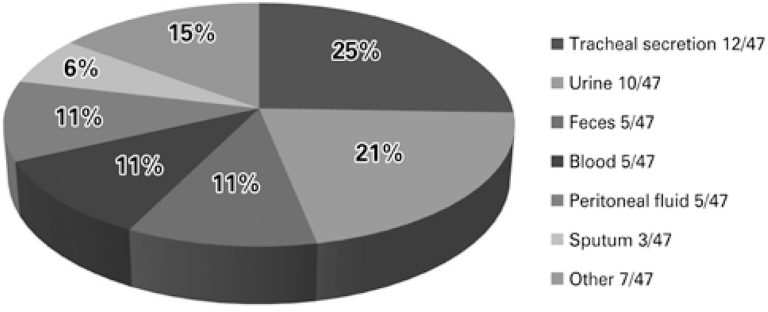08/Aug/2025
Transrectal prostate biopsy complications: a prospective single center study in a mid-income country
DOI: 10.31744/einstein_journal/2025AO1437
Highlights ■ This prospective cohort study assessed prostate biopsy complications in 1,043 men. ■ The major outcomes included bleeding (Clavien-Dindo Grades 2–3 = 1.5%), infections (4.7%), and urinary retention (4.1%). ■ The key risk factors for infection were recent quinolone use, indwelling catheters, and high PSA levels. ■ Acute urinary retention was linked to untreated lower urinary tract symptoms, prostate volume, intravesical prostatic protrusion, and bladder wall thickness. ABSTRACT Objective: To identify complications following transrectal posterior biopsies in a public […]
Keywords: Drug resistance; Early detection of cancer; Image-guided biopsy; Mass screening; Prostatic diseases; Risk Factors; Urinary tract infections
01/Jul/2014
Nosocomial infections by Klebsiella pneumoniae carbapenemase producing enterobacteria in a teaching hospital
DOI: 10.1590/S1679-45082014AO3131
Objective To analyze the profile of patients with microorganisms resistant to carbapenems, and the prevalence of the enzyme Klebsiella pneumoniae carbapenemase in interobacteriaceae. Methods Retrospective descriptive study. From the isolation in bacteriological tests ordered by clinicians, we described the clinical and epidemiological characteristics of patients with enterobacteria resistants to carbapenems at a university hospital, between March and October 2013. Results We included 47 isolated patients in this study, all exhibiting resistance to carbapenems, including 9 patients who were confirmed as […]
Keywords: Carbapenems/isolation & purification; Cross infection/prevention & control; Drug resistance; Enterobacteriaceae; Klebsiella pneumoniae/epidemiology
01/Apr/2011
Chronic myeloid leukemia: past, present, future
einstein (São Paulo). 01/Apr/2011;9(2 Pt 1):236-43.
View Article01/Apr/2011
Chronic myeloid leukemia: past, present, future
DOI: 10.1590/S1679-45082011RB2022
ABSTRACT The discovery of the Philadelphia chromosome in 1960, and of the BCR-ABL oncogene in 1984, enabled the development in subsequent years of a targeted therapy that revolutionized the treatment of chronic myeloid leukemia, thus changing its natural history. The use of imatinib resulted in a significant improvement of the prognosis and outcome of patients with chronic myeloid leukemia. However, the occurrence of mechanisms of resistance or intolerance precludes the eradication of the disease in some of the patients. Second-generation […]
Keywords: Drug resistance; Leukemia, myelogenous, chronic, BCR-ABL positive/therapy; Protein kinase inhibitors/therapeutic use



